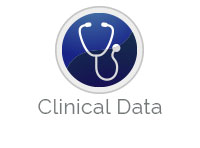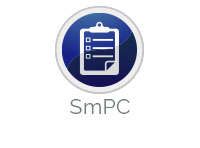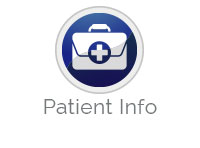Vencarm XL (venlafaxine) Prolonged-release Capsules Prescribing Information
(please refer to the full SmPC before prescribing)
Indications: Major depressive episodes (MDEs), prevention of recurrence of MDEs, generalised anxiety disorder (GAD), social anxiety disorder (SAD) and panic disorder, with or without agoraphobia. Available strengths: 37.5, 75, 150 and 225mg x 28 capsules. Dosage: MDEs: recommended starting dose 75mg once daily, if not responding, increase up to maximum 375 mg/day. GAD and SAD: recommended starting dose 75mg once daily. Panic disorder: 37.5mg/day for 7 days, then increased to 75mg/day. GAD, SAD and panic disorder patients not responding to 75mg/day increase up to maximum 225mg/day. For all indications maintain lowest effective dose; dose increases can be made at 2 weeks intervals or more; due to risk of dose-related adverse effects, only make dose increments after clinical evaluation; patients should usually be treated for several months or longer with regular reassessment. Caution in elderly. Not recommended in those under 18 years. Caution if GFR 30-70ml/min. In mild or moderate hepatic impairment, severe renal impairment (GFR < 30 ml/min) or haemodialysis reduce dose by 50%. Caution in severe hepatic impairment – reduce dose by more than 50%. Abrupt discontinuation should be avoided. Gradually reduce over several weeks/months to reduce risk of withdrawal reactions and monitor closely. Suicide/suicidal thoughts and aggression have been observed during venlafaxine dosing changes including discontinuation. Most commonly reported withdrawal symptoms: dizziness, sensory disturbances, agitation, nausea, vomiting, tremor, vertigo, headache, flu syndrome, visual impairment, hypertension. Administration: Take with food, at approximately same time each day. Swallow whole with fluid – do not divide, crush, chew, or dissolve. Patients on venlafaxine immediate-release tablets may be switched to venlafaxine prolonged-release capsules at nearest equivalent daily dosage. Contraindications: Hypersensitivity to active substance or excipients. Concomitant treatment with irreversible monoamine oxidase inhibitors (MAOIs) due to risk of serotonin syndrome. Do not initiate for at least 14 days after discontinuation of an irreversible/reversible MAOI. Discontinue for at least 7 days before starting an irreversible/reversible MAOI. Special warnings/precautions for use: Advise patients not to use alcohol, considering its CNS-effects, potential to clinically worsen psychiatric conditions and potential for adverse interactions with venlafaxine. Ethanol can affect the prolonged-release coating, causing dose dumping and potential toxicity. Write prescriptions for the smallest quantity consistent with good patient management to reduce risk of overdose. Monitor patients for risk of suicide-related events until improvement occurs. Monitor for clinical worsening, suicidal behaviour or changes in behaviour. Observe carefully (risk of potentially life-threatening serotonin syndrome) if given concomitantly with other serotonergic agents e.g. SSRIs, SNRIs, triptans, amphetamines, lithium, sibutramine, St John’s Wort, fentanyl and analogues, tramadol, buprenorphine, dextromethorphan, tapentadol, pethidine, methadone, pentazocine; agents that impair serotonin metabolism e.g. MAO-inhibitors, serotonin precursors e.g. tryptophan; or with antipsychotics and other dopamine antagonists, particularly during treatment initiation and dose increases. Reduce dose or discontinue if serotonin syndrome suspected. Monitor patients with raised intraocular pressure or at risk for acute narrow-angle glaucoma. Screen for high blood pressure and control pre-existing hypertension before starting treatment. Review blood pressure after starting treatment and dose increases. Caution in patients whose underlying conditions might be compromised by increases in blood pressure or heart rate, patients with recent history of myocardial infarction, unstable heart disease or at high risk of serious cardiac arrhythmia or QTc prolongation (consider risk-benefit balance). Caution if history or family history of bipolar disorder or aggression; if predisposition to bleeding, including use of anticoagulants or platelet inhibitors; if on diuretics or volume-depleted (risk of hyponatraemia/SIADH); use with caution if history of convulsions and discontinue in patients who develop seizures. Measure serum cholesterol during long-term treatment. Co-administration with weight loss agents not recommended. In patients who develop akathisia, increasing dose may be detrimental.
Advise patients about importance of dental hygiene. In diabetic patients, insulin and/or oral antidiabetic dosage may need adjustment. SSRIs and SNRIs may cause symptoms of sexual dysfunction which may continue after discontinuation. SSRIs/SNRIs may increase the risk of postpartum haemorrhage. Interactions: Must not be used with irreversible, non-selective MAOIs; concomitant treatment with reversible, selective MAOIs and linezolid not recommended. Serotonin syndrome – if concomitant treatment with SSRI, SNRI or serotonin receptor agonist (triptan) clinically warranted, carefully observe, particularly when starting treatment and dose increases. Caution when used in combination with other CNS-active substances, CYP3A4 inhibitors, lithium, imipramine, haloperidol, metoprolol. 150mg contains Allura red (E129) and Sunset Yellow FCF (E110) and 225mg contains Carmoisine (E122), which may cause allergic reactions. Avoid co-administration with medicines prolonging QTc interval (risk of QTc prolongation/ventricular arrhythmias). Pregnancy/breastfeeding: Only use in pregnancy if benefits outweigh risk. Discontinuation symptoms may be seen in newborns if used before birth. Potential increased risk of persistent pulmonary hypertension in newborn. Potential increased risk of postpartum haemorrhage if SSRI/SNRI exposure within month prior to birth. Risk to suckling child cannot be excluded – make decision to continue/discontinue breast-feeding or continue/discontinue Vencarm XL. Effect on driving: Caution patients on their ability to drive or operate hazardous machinery. Side effects: For full list of side effects consult SmPC. ‘Very Common’ ‘Common’ and ‘Serious’ side effects included in this prescribing information. Very common (≥1/10) side effects: insomnia, headache, dizziness, sedation, nausea, dry mouth, constipation and hyperhidrosis (including night sweats). Common (≥1/100 to <1/10) side effects: decreased appetite, confusional state, depersonalisation, abnormal dreams, nervousness, libido decreased, agitation, anorgasmia, akathisia, tremor, paraesthesia, dysgeusia, visual impairment, accommodation disorder, including vision blurred, mydriasis, tinnitus, tachycardia, palpitations, hypertension, hot flush, dyspnoea, yawning, diarrhoea, vomiting, rash, pruritus, hypertonia, urinary hesitation, urinary retention, pollakiuria, menorrhagia, metrorrhagia, erectile dysfunction, ejaculation disorder, fatigue, asthenia, chills, weight decreased, weight increased, blood cholesterol increased. Uncommon (≥1/1,000 to <1/100) serious side effects: gastrointestinal haemorrhage, LFT abnormal, angioedema. Rare serious (≥1/10,000 to <1/1,000) side effects: agranulocytosis, aplastic anaemia, pancytopenia, neutropenia, anaphylactic reaction, SIADH, hyponatraemia, neuroleptic malignant syndrome (NMS), serotonin syndrome, convulsion, angle-closure glaucoma, Torsades de Pointes, ventricular tachycardia, ventricular fibrillation, ECG QT prolonged, interstitial lung disease, pancreatitis, hepatitis, Stevens-Johnson syndrome, toxic epidermal necrolysis, erythema multiforme, rhabdomyolysis. Very rare (<1/10,000) serious side effects: thrombocytopaenia, tardive dyskinesia, mucosal haemorrhage, prolonged bleeding time. Not known (frequency cannot be estimated) serious side effects: suicidal ideation and behaviours, Stress cardiomyopathy (Takotsubo cardiomyopathy), postpartum haemorrhage. Overdose: severe poisoning symptoms may occur in adults after intake of approximately 3 grams of venlafaxine. Overdose with venlafaxine is reported predominantly in combination with alcohol and/or other medicinal products including cases with fatal outcome. The most commonly reported events include tachycardia, changes in level of consciousness, mydriasis, convulsion and vomiting. Other reported events include electrocardiographic changes, ventricular tachycardia, bradycardia, hypotension, vertigo and death. Severe poisoning may require complex emergency treatment and monitoring. In the event of suspected overdose, contact the National Poisons Information Service (NPIS). MA number: PL 35533/0074-0077 Cost: £3.30 for 37.5mg; £2.59 for 75mg; £3.89 for 150mg and £9.90 for 225mg (x28). MAH: Aspire Pharma Ltd, Unit 4, Rotherbrook Court, Bedford Road, Petersfield, Hampshire, GU32 3QG. Legal category: POM. Date reviewed: March 2024 Version number: 1010344190 v 8.0











